HHS Releases New Guidelines for Treating Opioid Use Disorder

The Department of Health and Human Services (HHS) recently released a new version of the Practice Guidelines for the Administration of Buprenorphine for Treating Opioid Use Disorder. The updated guidance removes the statutory training requirements for eligible physicians, physician assistants, nurse practitioners, clinical nurse specialists, certified registered nurse anesthetists, and certified nurse midwives to administer Buprenorphine, a medication for Opioid Use Disorder (OUD).
The decision to remove these certification requirements for eligible healthcare professionals is applauded by many healthcare organizations and workers as such requirements were cited as barriers around treating individuals with OUD. The hope is that the removal of training requirements will increase the access and use of Medication-based Opioid Use Disorder Treatment (MOUD).
According to data from the American Medical Association (AMA), opioid overdose deaths are surging in the U.S. The AMA’s latest Opioid Task Force Progress Report found that “illicitly manufactured fentanyl, fentanyl analogues and stimulants (e.g. methamphetamine, cocaine) are now killing more Americans than ever. The use of these illicit drugs has surged and their overdose rate increased by 10.1% and 10.8%, respectively.”
Click here to learn more about the guidance which went into effect on April 28, 2021.
FDA Approves Pfizer Vaccine for Young Teens; States Plan for Hurdles Ahead

On Monday, May 10, the Food and Drug Administration (FDA) granted Pfizer’s COVID-19 vaccine emergency use authorization (EUA) for children aged twelve to fifteen years old. With right around 17 million children falling into this age bracket nationwide, the FDA’s decision is a milestone in the race to vaccinate America.
However, health and school administrators have expressed concern about the hurdles states will have to overcome to vaccinate younger teenagers. When vaccinating children as young as twelve years old, there is a “‘different level of sensitivity,'” said Nathan Quesnel, a school superintendent who spoke with The New York Times. Already, schools and health organizations are determining how to educate parents about the vaccine and reassure them that having their child vaccinated is the right decision.
It is expected that vaccination for children aged twelve to fifteen years will start by the end of this week. State sites are expecting and preparing for “an initial surge in demand”.
Pfizer has already expressed that it plans to seek a EUA for vaccinating children under the age of twelve sometime later this year.
Click here to read more from The New York Times.
AMA Issues Report on COVID-19 and Medicare Spending

The American Medical Association (AMA) issued a report that summarizes the impacts of the COVID-19 pandemic on the spending and use of Medicare physician services. The report, which focused on the first half of 2020, highlights the stresses placed on physician practices across the country. Practices are still experiencing decreases in patient volume and revenue as well as increases in practice costs, according to the report’s findings.
In March and April of 2020, MPFS spending declined by as much as 57% and although spending recovered by the end of June in the same year, it was still 12% lower than previously expected. For the first half of 2020, it is estimated that Medicare physician spending was reduced by $9.4 billion.
The specialty that experienced the largest reduction in spending was physical therapists, who saw a 34% decrease. The average drop in revenue for practices across the nation was 32%.
Click here to read more.
Arizona Physicians Urge Residents to Continue Wearing a Mask

The Arizona Medical Association (ArMA) released a press release urging Arizonans to continue to wear a mask and follow CDC guidance as we respond to the COVID-19 pandemic. Vaccination efforts are ongoing, and do show progress, but physicians know it is imperative that Arizonans of all ages remain committed to reducing the spread until herd immunity is reached.
“While the vaccination numbers continue to rise, we must remain consistent in our effort to protect the most vulnerable from this virus and its variants,” stated Miriam Anand, MD, ArMA President. “Now is not the time for preventive measures to take a backseat in this fight. We hope that everyone will continue to follow CDC guidance as we navigate through what we hope is the end of this pandemic.”
Miriam Anand, MD, ArMA President
ArMA is the largest physician-led organization in Arizona and continues to provide physician input on public health measures with patients’ safety as the top priority. ArMA encouraged all Arizonans to practice protective measures against COVID-19 that include continuing to wear a mask in public, practicing physical distancing, and maintaining good hand hygiene, and if able, getting vaccinated.
Government Banned from Requiring Proof of Vaccination

Governor Doug Ducey issued an Executive Order banning the government from mandating residents to provide proof of vaccination. The order bars state and local agencies and jurisdictions from requiring residents to provide a “vaccine passport” in any setting.
The Governor clarified that he strongly encourages Arizonans to get vaccinated, but does not feel that it is the role of the state to mandate vaccination.
“The residents of our state should not be required by the government to share their private medical information.”
Governor Doug Ducey
Private businesses, health care centers, daycares, and schools are exempt from the order however, any business that is in contract with the state is held to the order.
Click here to read more on this story.
ArMA Joins Physician Organizations in Asking for Veto of SB1456

Last week, the Arizona Medical Association joined the Arizona chapter of the American College of Obstetrics and Gynecology (AZ-ACOG), the Arizona Academy of Family Physicians (AAFP), and the Arizona chapter of the American Academy of Pediatrics (AZ-AAP) in asking Governor Ducey to veto SB1456.
The bill prohibits comprehensive, age appropriate, medically accurate sex education for Arizona children. Creating access to medically accurate, comprehensive sexuality education by using an evidence-based curriculum and reducing sociodemographic disparities in its receipt remains a primary goal for improving the well-being of teenagers and young adults.
The letter prompts Governor Ducey to veto the bill, calling on the importance of sexual education and outlining what an effective program would entail:
“Sexuality education should begin in early childhood and continue through a person’s lifespan… Programs should not only focus on reproductive development prevention of STIs/HIV, and unintended pregnancy, but also teach about forms of sexual expression, gender identity, healthy sexual and nonsexual relationships, communication, recognizing and preventing sexual violence, consent, and decision making. They also should include state-specific legal ramifications of sexual behavior and the growing risks of sharing information online.”
Letter to Governor Ducey
SB1456 impedes access to this important education and is therefore harmful to an adolescents/student’s health. Further, it promotes curriculum that excludes LGBTQ+ students, which contributes to an unsafe school environment. Click here to read the letter.
Apply Now: CMS Primary Care First Model

The Centers for Medicare and Medicaid Services (CMS) are now accepting applications for the 2021 Cohort of the Primary Care First Model (PCF). PCF is open to medical practices that provide primary care services in 26 regions across the country, including Arizona, with an application deadline of April 31, 2021. PCF is a set of voluntary alternative five-year payment options that reward value and quality by offering an innovative payment structure to support the delivery of advanced primary care. PCF is founded on the principles of the Comprehensive Primary Care Plus (CPC+) model design: prioritizing the doctor-patient relationship; enhancing care for patients with complex chronic needs, and focusing financial incentives on improved health outcomes. Learn more about PCF on the CMS website here.
Physicians considering applying for the PCF model to start in 2022 are also invited to register now for a webinar to be offered Tuesday, April 13, from 4-5PM PST by the American Medical Association, American College of Physicians, American Academy of Family Physicians, and the CMS Innovation Center. The live webinar will allow participants to hear from CMS and medical society experts about the model and how participation could affect their practice revenues. Additional details, including the request for applications, a map of the 26 regions, and lists of the practices and other payors that are participating as part of the 2021 cohort are available on the CMS Primary Care First website.
ArMA’s Third Priority Bill Reaches the Ninth Floor

After a long and uphill battle, SB1377 received final approval from both chambers and is on the Governor’s desk. This bill protects physicians and their practices from frivolous lawsuits arising out of the COVID-19 pandemic, by codifying that a healthcare professional or institution is not liable for an act or omission arising from providing services related to the pandemic unless it can be shown by clear and convincing evidence that the act or failure to act was the result of willful misconduct or gross negligence. The legislation was touted by the Arizona Medical Association (ArMA) as a way to say “thank you” to the extraordinary efforts of so many who are serving as healthcare heroes during the COVID-19 pandemic, and legislators responded. When signed, it will make the Governor’s Good Samaritan Executive Order the law of the land regardless of the potential end to the public health emergency.
This is the third ArMA priority to make it to the Governor’s desk this year, and great news for Arizona physicians!
Senate Extends Medicare Sequester Moratorium

Last week, the Senate voted to pass an agreement reached by Leaders Schumer and McConnell to extend the two percent Medicare sequester moratorium that would have expired on April 1. The bipartisan legislation will provide a nine-month extension of the moratorium, through December 31. It also contains some technical corrections related to rural health clinics and disproportionate share hospitals.
The House of Representatives passed different legislation earlier that would both extend the moratorium through the end of the pandemic and eliminate an additional four percent Medicare sequester scheduled to take effect on January 1, which was required by PayGo rules to offset part of the cost of passing the American Rescue Plan COVID-19 stimulus package. Consequently, the House will need to pass the Senate language when it returns from its Easter recess in mid-April. The House is expected to vote favorably, and the Centers for Medicare & Medicaid Services (CMS) is expected to hold off on processing April claims until then to avoid making reduced payments.
Executive Order Eases COVID-19 Restrictions; Arizona Medical Association Responds

On Thursday, March 25, 2021, Governor Ducey announced a new phase of COVID-19 mitigation for Arizona and issued an Executive Order. The order does several things, including:
- Events with 50 people or more will no longer need the approval of local governments.
- The business guidance will transition from requirements to recommendations. Businesses may continue requiring masks, social distancing, and other requirements, but only if they choose to do so.
- Bars will be able to resume regular operations.
- Local mask mandates are eliminated, with the exception of government buildings and public transportation.
According to the Governor’s press release, the decision was made due to the increasing vaccination rates (over 3 million doses administered to date), ten weeks of declining case counts, and hospitalization rates at their lowest since September 2020.
The Arizona Medical Association acknowledges that throughout the state, we continue to see meaningful declines in cases and hospital occupancy, with the rate of vaccination continuing to rise. However, Arizona physicians want to remind everyone that while we are on the right path, we’re not out of the woods yet.
“Even with the relaxing of the restrictions, our responsibilities do not change,” stated Dr. Ross Goldberg, President of the Arizona Medical Association (ArMA). “Until we reach herd immunity, which is 70-85% of Arizonans fully vaccinated, we must continue to do what we know works to reduce the spread of COVID. That includes continuing to wear a mask in public and physically distancing from those outside your household. We have been pretty good at predicting surges in the past, and we ask everyone to do what they can to help us avoid another one. We are still responsible to each other.”
Click here to read more.
